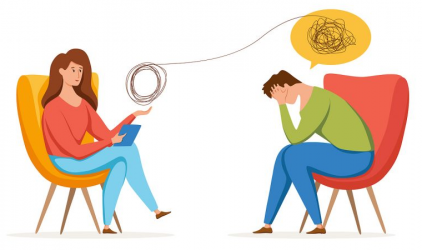How does counselling help exactly? Should I choose a male or female counsellor? How many sessions would I have to attend? We interview EMCC Head of Counselling, Ms Ng Ai Ling, to get answers to these and other burning questions from our readers.
Q: How do I know if I/ someone needs to see a counsellor?
NAL: In many ways, mental health is similar to physical health. There are usually symptoms if you are not feeling your best. You know someone needs to see a medical doctor if they have a persistent cough, a visible bruise or a broken arm that’s causing a lot of pain. But sometimes there aren’t obvious symptoms.
In the same way, there are signs when someone might benefit from counselling. Some of these are: frequent conflicts in relationships, feeling sad/angry/ anxious or “not yourself”, unable to focus at work or unable to enjoy what you used to like doing.
Experiences which may trigger some of the above feelings are loss of someone or something important to you or an unpleasant or traumatic event. Another sign is a change in behaviour such as abusing drugs, alcohol and/or sex to cope.
Q: How exactly will counselling help?
NAL: The goal of a counsellor is to help their client feel more confident, less distressed and better able to cope with their situation. When you share with your counsellor about your difficulty and how it is bothering you, he/she will be able to assess your situation, identify the underlying issues/ needs, recommend interventions and support you on your journey. The sense of safety and collaboration between clients and counsellors is a big part of the counselling process.
Q: How do I choose a counsellor? Does it matter if it’s a man or woman?
NAL: All our counsellors are trained to help individuals presenting with issues in areas such as stress/anger management, interpersonal conflicts, personal development difficulties, work-related challenges and mental health conditions (e.g., anxiety, depression, bipolar disorder).
For marital/family conflicts, it is important to have a counsellor who is trained in these areas. If you are seeking help for specific issues (e.g., addiction, domestic violence) or specialised approaches (e.g., hypnotherapy and Gottman Method Couples Therapy), find a counsellor who is trained in these areas and modalities.
The gender of the counsellor usually doesn’t matter unless you/your spouse is uncomfortable with a specific gender, or the situation calls for this to be a consideration. For instance, at EMCC, we would usually assign a female counsellor to work with a female client presenting with abuse concerns.
Q: How many sessions do I have to attend? How often are the sessions?
NAL: It depends on the complexity of the presenting issue, your work schedule, and so on. We have helped clients through one session and others through more than 10 sessions spaced out over a year. The number usually ranges from 4 – 8 sessions.
At your first session, your counsellor and you will discuss your presenting issue and the outcome you hope to get out of counselling. At the start of every session, our counsellor uses a form to help you to rate your well-being. Before the session ends, our counsellor administers a feedback form to find out how the session has been for you. Based on this on-going feedback, you and your counsellor then decide the frequency and progress for the counselling.
Q: If the client has some knowledge of counselling/psychotherapy, will therapy still work?
NAL: Yes, it will work. Therapy is not about your counsellor trying to take over control of your mind or changing your behaviour against your will. Nor is it a situation where your counsellor is trying to “catch” you doing something. Therapy is also more than just receiving advice from a trained counsellor. It is an experience of feeling safe to share your vulnerable thoughts and feelings, to be heard and validated by your counsellor and/or spouse (if you are in couple counselling), and finally to decide what you can do for yourself/your situation.
Q: How can I be assured everything shared is kept confidential?
NAL: Everything you share with your counsellor is confidential. The notes are kept within the office by your counsellor and only your counsellor has access to them. The files are deleted three years after your counselling has ended.
Q: Is counselling expensive?
NAL: In Singapore, there is a wide range of fees depending on whether you go to a private practice, social service agencies or religious organisations. For instance, with the support of donations from our benefactors, EMCC is able to provide subsidies for those in need of financial help. Fees are usually published on the organisation’s website.
If you need financial assistance, don’t hesitate to ask. It is important to get the help you need. For more information, please refer to https://emcc.org.sg/counselling/what-is-counselling/


